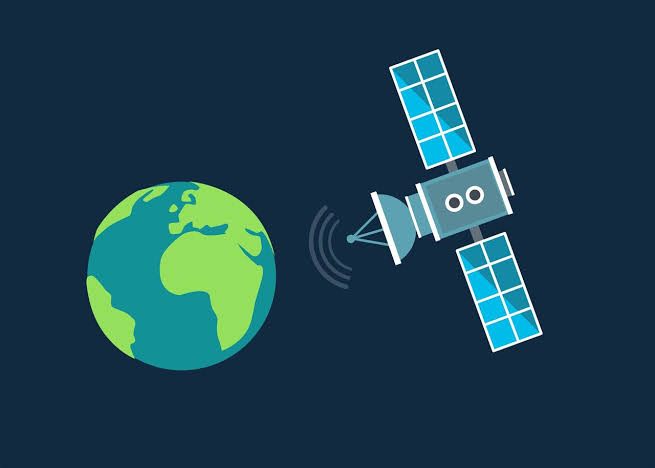Table of Contents
ToggleWhat is Space Espionage?
Space espionage, often called space spying, involves the use of satellites and other space technology to gather information covertly. This activity is similar to traditional espionage, where countries or organizations try to collect information about others secretly. However, in space espionage, the tools used are much more advanced and high-tech.
Space espionage typically involves the use of specially designed satellites. These satellites are equipped with cameras and sensors that can capture detailed images and data from space. These images and data can include anything from weather patterns to the layout of military bases. Because these satellites orbit the Earth, they can provide a constant stream of information.
How is Space Espionage Used?
Space espionage is primarily used for intelligence gathering. Governments and military organizations use it to keep an eye on other countries. By using satellites, they can monitor movements, detect changes, and gather data that can be crucial for national security. For instance, a country might use space espionage to watch over another country’s military activities. If they notice unusual troop movements or the construction of new facilities, they can prepare and respond accordingly.
Apart from military uses, space espionage also plays a significant role in economic and technological intelligence. Companies and governments use satellite data to keep tabs on their competitors. For example, they can monitor the development of new infrastructures, like factories or research facilities, to gain insights into what their competitors are working on.
Another significant use of space espionage is environmental monitoring. Satellites can capture images and data that help track changes in the environment, like deforestation, water levels, and climate change. While this use is more benign, it still involves the same technology used for espionage purposes.
Why is Space Espionage Necessary?
Space espionage is considered necessary by many nations for several reasons. One of the main reasons is national security. In a world where threats can come from any direction, having a way to monitor other countries is crucial. By using satellites, countries can detect potential threats early and take steps to counteract them.
China Launches Bold Crackdown on Aerospace Espionage Amid Rising Tensions
Another reason is strategic advantage. Having detailed and up-to-date information about other countries’ activities can give a nation a significant edge. This information can be used to make informed decisions in diplomacy, trade, and military strategy.
Economic reasons also drive the need for space espionage. Companies and governments want to stay ahead of their competitors. By gathering intelligence on what others are doing, they can adapt and innovate to maintain their edge.
Finally, monitoring the environment and natural disasters is another important aspect. Space espionage technologies can provide valuable data that helps manage and respond to natural disasters. This use, while not the primary focus of espionage, highlights the dual-use nature of the technology.
Major Concern: China’s Cloud Services in Danger from Espionage
Prominent Cases of Space Espionage
Several notable cases of space espionage have come to light over the years. These cases illustrate the various ways space espionage is employed and the impact it can have.
One well-known case involves the use of reconnaissance satellites during the Cold War. Both superpowers, the United States and the Soviet Union, used these satellites to keep an eye on each other’s military activities. These satellites could capture detailed images of military installations, missile sites, and troop movements. This constant monitoring helped both sides maintain a balance of power and avoid surprises.
Another significant case is the use of satellites for economic espionage. In one instance, a country used satellites to monitor the construction of a new factory in a rival nation. By analyzing the satellite images, they could determine what kind of products the factory was likely to produce and adjust their own strategies accordingly. This type of economic espionage is a common practice and highlights the strategic value of space intelligence.
China’s First Space Espionage Scandal: China Blames US for Incidence
Space espionage has also been used to track and monitor arms control agreements. Satellites can provide verification that countries are adhering to their commitments. For example, after signing a treaty to limit the production of nuclear weapons, countries can use satellites to ensure that the agreed-upon restrictions are being followed. This monitoring helps build trust between nations and promotes global security.
Environmental espionage is another area where space technologies are applied. In one case, satellites were used to monitor illegal deforestation activities in a remote region. By capturing images of the affected areas over time, authorities could identify the perpetrators and take action to stop the illegal activities. This use of space technology highlights its potential for positive impacts on global issues.
In a more recent case, movements of a rogue nation’s ballistic missile program were tracked using the espionage techniques. Satellites provided detailed images and data on the development and testing of new missile systems. This intelligence allowed the international community to respond with sanctions and diplomatic pressure to curb the threat.
These cases demonstrate the diverse applications and significant impact of space espionage. Whether for military, economic, or environmental purposes, space espionage continues to be a critical tool for gathering intelligence and maintaining global security.
Space espionage is a complex and powerful tool that countries use to gather intelligence and maintain a strategic advantage. By leveraging advanced satellite technology, nations can monitor activities across the globe, ensuring their security and gaining insights into the actions of others. While it has its roots in military applications, its uses have expanded to include economic intelligence, environmental monitoring, and more. As technology continues to advance, the importance and capabilities of space espionage are likely to grow, making it an essential aspect of modern intelligence and security operation.




